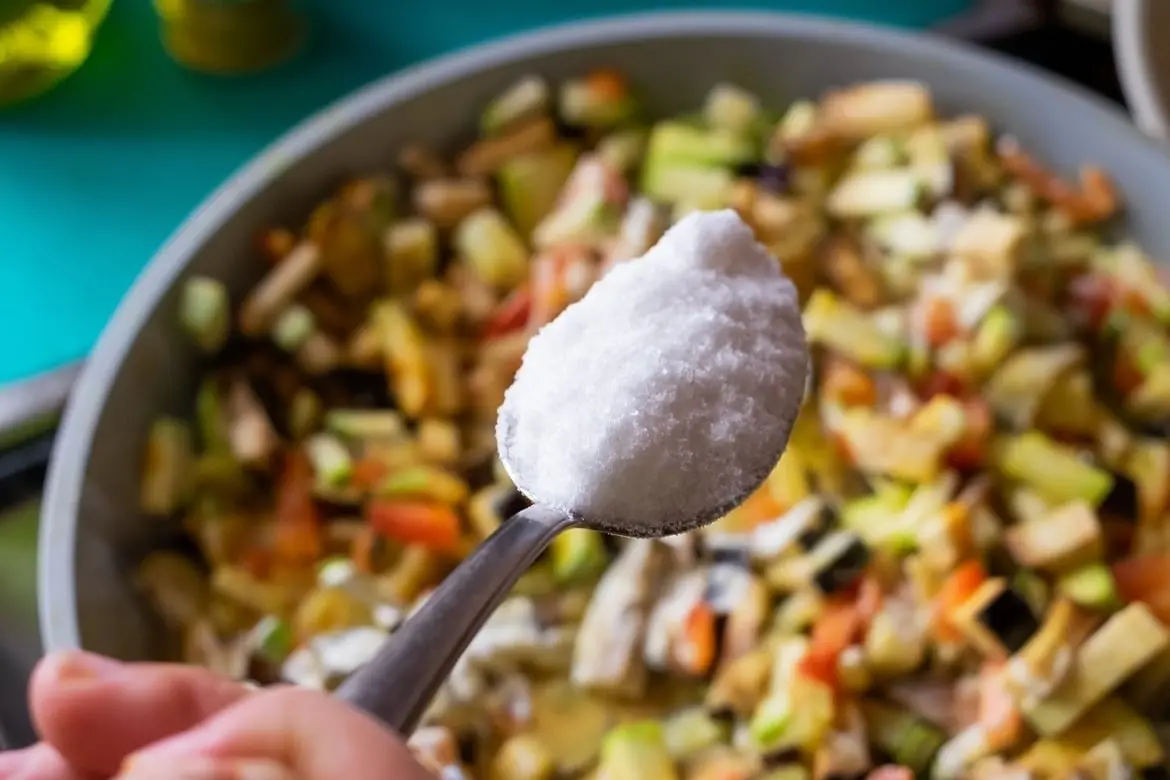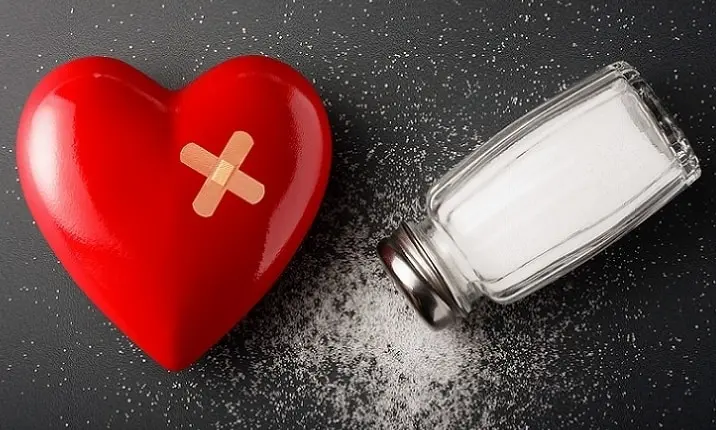

Source: Shutterstock
How Does Salt Affect Your Body?
Last updated: Monday, June 20, 2022 | 2 min reading time
Salt is a staple form of food seasoning. It gives food that extra flavour that we all love. But do you know that most of us are taking way too much salt than is necessary? Learn more about the link between salt and our body here.
What is salt?
Sodium chloride, commonly known as salt, is made up of 40% sodium and 60% chloride by weight. As such, the terms salt and sodium are often used to mean the same thing.
These minerals are essential for the body to function properly; from muscle movements to the maintenance of the nervous system. A certain amount of salt is naturally present in most of the food we eat. However, extra salt is often artificially added to foods to further enhance the taste.
Clearly, salt is needed for our bodies to work, but do you know that too much salt is actually bad for us? So, how much salt is considered too much?
Recommended intake
The recommended salt intake ranges from person to person depending on their medical condition and dietary restrictions.
American Heart Association recommends not more than 2,300 mg of sodium intake per day, and ideally not more than 1,500 mg for most adults, especially those with hypertension.
Consult a dietitian for a personalised meal plan to help manage your health conditions.
The effect of extra salt in your diet
Excessive sodium intake has been linked to elevations in blood pressure, which could lead to other medical complications including hypertension, stroke and cardiovascular diseases.
Tips on cutting down salt
If possible, always opt for fresh whole food and make your own meals at home. Also,
- Avoid processed food and eating at restaurants where you don't know how much salt is being added.
- Avoid or limit your condiment usage. Chilli sauce, soy sauce and certain salad dressings are surprisingly high in salt.
- Taste your food before adding salt. You may find that it tastes fine on its own.
- Season your food with herbs and spices instead of salt
- When eating out, ask for less gravy and avoid drinking the soup that comes with the dish as it could contain high amount of salt.
When should you see a doctor?
If you have been living on a high-salt diet for most of your life, you are at risk of developing hypertension, or high blood pressure. Hypertension is often called the silent killer. Most people with hypertension are unaware that they have the condition as there may not be warning signs or symptoms. Sometimes, hypertension is only discovered when complications set in, for example, a stroke or heart attack. The only way to detect hypertension is through regular check-ups.
If you are experiencing these symptoms, go to the nearest Urgent Care Centre (UCC).
- Severe headache
- Fatigue or confusion
- Vision problems
- Chest pain
- Difficulty breathing
- Irregular heartbeat
- Blood in the urine
- Pounding in your chest, neck, or ears
Suzanne R. S. (2018). Symptoms of High Blood Pressure. Retrieved on 7/01/2020 from https://www.webmd.com/hypertension-high-blood-pressure/guide/hypertension-symptoms-high-blood-pressure
High Blood Pressure (2019). Retrieved on 7/01/2020 from https://www.healthhub.sg/a-z/diseases-and-conditions/53/highbloodpressure
Whiteman, H. (2016). Salt could lead to weight gain by driving fatty food intake. Retrieved on 21/12/19 from https://www.medicalnewstoday.com/articles/307820.php#2
High Blood Pressure (2019). Retrieved on 7/01/2020 from https://www.healthhub.sg/a-z/diseases-and-conditions/53/highbloodpressure
Whiteman, H. (2016). Salt could lead to weight gain by driving fatty food intake. Retrieved on 21/12/19 from https://www.medicalnewstoday.com/articles/307820.php#2
 Brain & Spine Care
Brain & Spine Care










